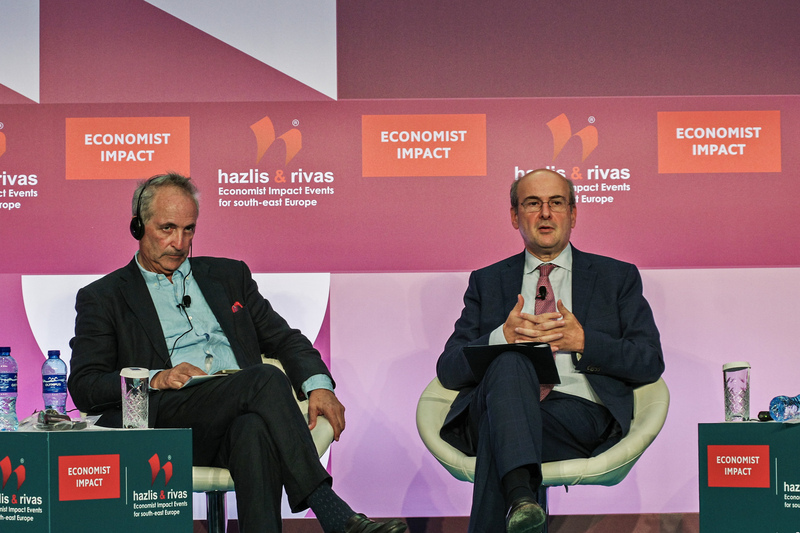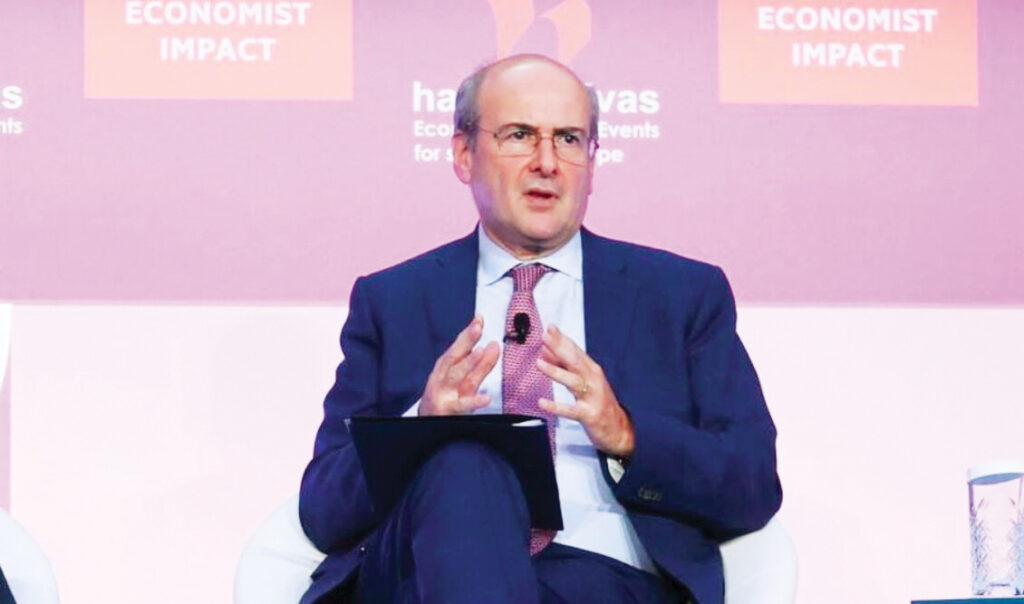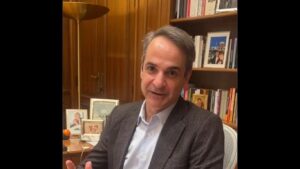Government Vice President Kostis Hatzidakis, speaking at the 29th annual Economist conference, presented the government’s five initiatives for the coming period, describing them as “key moves” aimed at building a stronger Greece.
Mr. Hatzidakis specifically referred to:
- The Prime Minister’s announcements next September at the Thessaloniki International Fair. “They will move on many levels, but mainly towards further tax reduction, primarily for the middle class. This becomes possible mainly thanks to the fight against tax evasion, the introduction of the digital work card and the high growth rates compared to other European Union countries,” he said.
- The battle against the deep state. “After the successes we had with digital modernization, tax evasion, DEI, EFKA, the introduction of digital procedures in healthcare, the battle will be fought in two main sectors. OPEKEPE and OSE. As we succeeded in the other sectors, we will succeed in these two as well. Before the elections there will be tangible evidence of this.”
- The separate battle to improve public service operations. “Despite progress, we still have ‘stories of daily madness’. We will make the public sector more citizen-friendly, make interaction with public services simpler. And we will intensify efforts for evaluation by expanding the field in education and introducing patient evaluation in healthcare. We will also proceed with the digital work card in the public sector,” noted the government vice president.
- The national water strategy. “The Mediterranean is at the center of the climate crisis and Greece ranks 19th globally in terms of water scarcity risk. A series of moves have been made, but a coherent national strategy is needed that will address the fragmentation of water planning and management. This will be one of the basic government priorities,” Mr. Hatzidakis emphasized.
- The social field, a sector where the activation of three new European funds adds new tools for improving daily life and quality of life. As the government vice president mentioned, the budget of the three funds equals half a Recovery Fund and these funds will finance among others: Metro upgrades, procurement of new electric buses, a new faster “Save Energy” program as well as actions to support our fellow citizens with disabilities.


Hatzidakis at the Economist conference: The main successes of government policy
“We will move forward,” he emphasized, “knowing that citizens don’t just focus on what has been done but rightfully demand further interventions that will lead to better quality of life, income enhancement and a stronger Greece.” The government vice president referred to the main successes of government policy, noting among others the fiscal surplus in 2024, the record in foreign investments, the recovery of investment grade from all rating agencies, the reduction of unemployment below 8% for the first time since 2008 and the acquisition proposal for the Greek stock exchange by Euronext.
He added that the government continues without any hesitation the reforms during the second term, mentioning indicatively: The introduction of private universities, the fight against tax evasion, interventions to accelerate justice, spatial planning, completion of the Land Registry by the end of the year, the new strategy for strengthening exports and the goal of reducing bureaucracy faced by businesses by 25%. “All these,” he stressed, “highlight the political will to promote necessary reforms in order to achieve convergence with the European Union average.”
Mr. Hatzidakis characterized artificial intelligence as a significant opportunity for Greece due to its high-quality scientific potential. He mentioned that emphasis will be given to 4 areas: improving productivity, ensuring that everyone will have the required skills to utilize artificial intelligence, shaping the appropriate regulatory environment that will promote innovation while protecting human rights and freedoms, and finally using artificial intelligence to make the state more effective.
On Greece’s position in the world
Finally referring to Greece’s position in the world, Mr. Hatzidakis highlighted two advantages that our country has, which are participation in NATO and the European Union on one hand and the fact that it is located at the crossroads between southeastern Europe, the Middle East and Africa on the other.
“We know,” Mr. Hatzidakis concluded, “that to have a positive future we must combine two parameters. Strong economy and strong defense. These are two areas in which the government invests a lot. After the dramatic experience of the past decade, we know that the secret is the private sector. How one can give all the necessary opportunities to the private sector in order to develop. If you have a strong private sector, you have a strong economy and a strong country.”




